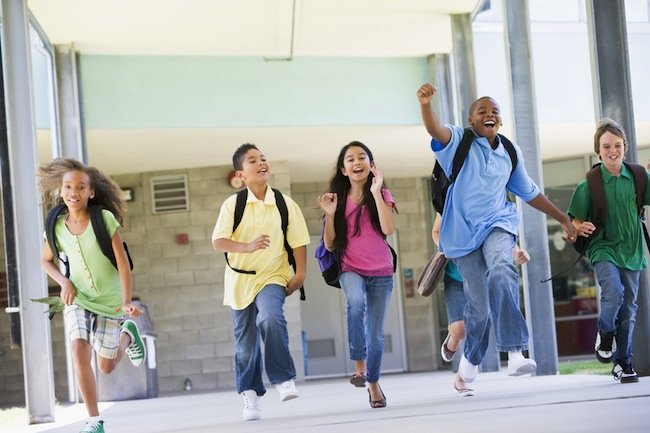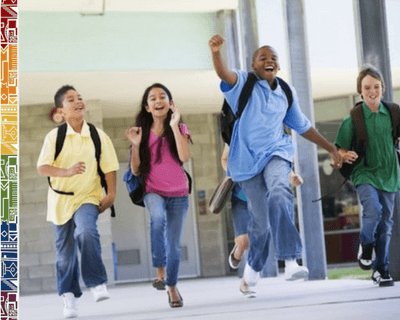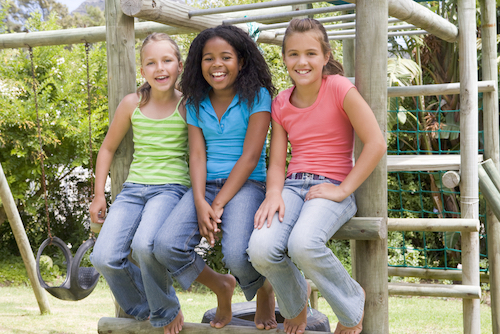Education in South Africa
The current state of education in South Africa is a worry to many a parent. Many schools in South Africa could be described as 'dysfunctional' but according to the Department of Education the schooling system is finally 'changing for the better'. Most of the statistics we accessed, however, suggest that South African pupils lack basic skills and knowlegde compared to their peers around the world and that the education standards in South Africa are, in general, very poor. However, there is a big divide depending on the provinces as well as the different school districts and even various schools in these districts.
ExpatCapeTown Education Guide

- Current Situation of Education in South Africa
- School System and Schooling Options
- Private Schools in Cape Town
- International Schools in Cape Town
- Pre-schools in Cape Town
- Children with Special Needs
- Cape Town universities and Colleges
- Language Schools in Cape Town
- After School Clubs and Extramural Tuition
- School Terms and School Holidays in 2019 and 2020
- Holiday Activities for Kids: 2019/2020
- Education and Schools Directory 2019/2020
Private schools working on a different curriculum than the state's highly controversely discussed CAPS-curriculum, generally have better retention rates and higher education standards - and they provide a different set of final exams in the final years of schooling such as IEB or Cambridge exams. Students in these schools often do better than students in most public school. However, there are excellent public schools, often so-called former Model C-Schools, which either are mainly located in the more affluent suburbs of the cities and which are supported by various (mainly private) initiatives.
Some basic Education Facts
- In South Africa, there are 12.7 Million learners in 30,000 schools. 26,000 of these are public schools, while 15,000 of these state schools are primary schools. There are only 450 special schools for learners with special needs.
- The average ratio of learners to teachers is 29:1 in public schools and 18:1 in private schools.
- There are 1,600 private or independent schools in South Africa. Over 4% of all pupils attend independent/private schools. Most of the private schools are located in Gauteng and the Western Cape.
- The average results for Annual National Assessments (public schools, latest data from 2013) in Grade 4 were: Home Language 49%, Mathematics 37%. In Grade 6 more than 11% did not reach sufficient achievement in their Home Language, levels meaning achieving less than 40% in their first language and over 36% failed in Mathematics. In Grade 9 tests, 37% of the learners achieved better than 50%, in Mathematics only 3.4% of all learners achieved marks higher than 50%!
- The retention rate for the first nine years of schooling, which are compulsary, is at around 95%, however the high drop out rate after the nine years of compulsory schooling is worrying. From high school students, who started schooling in 2003 and could have written their final Grade 12 exams in 2015, only about 45% finished high school. The retention rate is stated to be as low as 55% of the total intake in 2003.
- In 2018, the Matric pass, which is the highest school leaver exam the South African school system at Grade 12, was achieved by 78.2% according to the South African minister of education. Her claim is disputed as others speak about much lower percentages of 40%. A matric pass in South Africa is achieved when these minimum requirements are met: Six of seven subjects have been passed, 40% mark in 3 subjects including one language, and 30% mark in 4 other subjects. Only half of all students achieve marks higher than 50%.
- Only 6% of all adults aged between 25 and 34 years have a tertiary education in South Africa. The tertiary attainment is the lowest across all OECD and partner countries! The OECD average stands at 38%. The graduation rate of students at public universities is very low. Among undergraduate students the graduation rate stands at a low 15%, at 20% for Master students and 12% for doctoral students in 2013.
- The gender gap is small in South Africa. In fact, in the 2019 OECD report, more women achieve an upper secondary or post-secondary education than men.
Public Schools or Private Education for your expat children?
Have a look at the special page on the various types of schools in South Africa and about finding the right school in South Africa.
In general, expats generally rank South Africa quite high in regards to providing quality education for their younger children. International expats rated the options in South Africa for getting a good private education, quality childcare and exceptional after-school-activities among the highest in the world - in 2014. More recently, the 2019 expat survey scores are not as high anymore, but for learning South Africa still ranks 21st out of 33 countries.
Education in South Africa| A bit more about the School System
Schooling is compulsory from grade 1 to grade 9 in South Africa, i.e school starts for the children in the year they turn seven and they have to attend school until they turn 15.
This basic general school education and training is divided into three phases:
- Foundation phase: Grade R (reception) – Grade 3
- Intermediate phase: Grade 4 – Grade 6
- Senior phase: Grade 7 – Grade 9
Some schools offer grade 0 or R classes for children in preparation to start school for children starting in the year they turn six. Primary school is attended in grades 1 to 6, while high school goes from grade 7 to grade 12, when the children will have their matric exam, that is matriculation, A-levels or baccalaureate or Abitur.
In Grade 3 a second language is introduced usually Afrikaans or English which depends on the first language offered. Some schools offer French instead of Afrikaans like the international schools. Xhosa is taught in Cape Town high schools usually from grade 7, but you will find Xhosa classes taught also in lower grades. Please note: Sometimes the grades are still referred to as Standards, i.e. standard 2 means grade 4 and standard 6 means grade 8.
Standard of Education in South Africa | Challenges and Improvements
South Africa's education system is facing major challenges. Due to a lack of financial support smaller schools in rural areas have to close and a lack of sufficiently educated and motivated teachers as well as a lack of facilities places a huge strain on the system. The financial burden to the local governments as well as to the pupils' families, who often belong to the previously disadvantaged population, is high. The majority of pupils still live in poorest conditions in rural areas or the growing townships of the major cities. The standard of education in South Africa varies from region to region and school to school.
Although some recent statistics suggest that the education system is failing the majority of children, placing South Africa at the second last position on the international league table (OECD 2017), there are signs that during the last twenty-five years quite some progress was made to increase the levels of education in South Africa. Efforts to address inequality, overcrowding and disastrous sanitary situations need to be addressed and it will certainly take a long time to remedy the lack of funding and initiative of the past. Major developments such as the introduction of mandatory early childhood education have been implemented already and an increased expenditure per pupil will improve the situation as first steps already have been taken. If you want to help and make a difference in the life of South African children, here are some great initiatives to support:
References for Education in South Africa
- Bradley Prior. "South Africa's Matric Pass Rate - 1995 - 2018." MyBroadband. 5 January 2019. https://mybroadband.co.za/news/government/290732-south-africas-matric-pass-rate-1995-to-2018.html Accessed 20 November 2019
- Ayesha Fridie. " What are the new Matric Pass Requirements." Parent24. 28 October 2019. https://www.parent24.com/Learn/Matric-past-exam-papers/what-is-a-matric-pass-20160106. accessed 20 November 2019
- "Compare South Africa". HSBC ExpatExplorer 2019. https://www.expatexplorer.hsbc.com/survey/country/south-africa Accessed 20 November 2019
- "South Africa - Education at a Glance 2019. OECD. https://www.oecd.org/education/education-at-a-glance/EAG2019_CN_ZAF.pdf . Accessed 20 November 2019
- Education Statistics in South Africa in 2014. Published in March 2016. https://www.education.gov.za/Portals/0/Documents/Publications/Education%20Statistics%202014.pdf?ver=2016-05-13-144159-067 Accessed 20 November 2019.
- "The Big Changes coming to South African Schools." BusinessTech. 3 November 2019. https://businesstech.co.za/news/government/350805/the-big-changes-coming-to-south-african-schools/
More info on Living in Cape Town with Kids
Back to Cape Town Schools Guide
Return from Education in South Africa to ExpatCapeTown Homepage
Education in South Africa | Popular Pages
Like us on Facebook |



